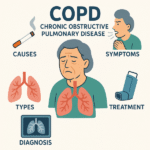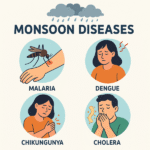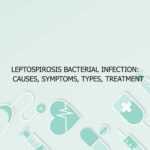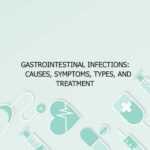Now Reading: Early Signs & Symptoms of Pregnancy at 1 Week
- 01
Early Signs & Symptoms of Pregnancy at 1 Week
Early Signs & Symptoms of Pregnancy at 1 Week
Pregnancy is an incredible journey that begins with subtle changes in a woman’s body. While it may seem too early to detect pregnancy at just one week, many women begin to notice small, physiological cues that something new is happening. Technically, the first week of pregnancy is calculated from the first day of your last menstrual period (LMP), not from the day of conception. This means that at week one, you’re not yet actually pregnant, but your body is preparing for ovulation and possible fertilization. Despite this, some women may notice early pregnancy-like symptoms due to hormonal fluctuations or heightened awareness of their body.
These early signs, though often mild and easily mistaken for premenstrual symptoms, can include fatigue, mood swings, nausea, bloating, breast tenderness, and subtle changes in cervical mucus. Understanding these signs and how they relate to your menstrual cycle is crucial for women actively trying to conceive or monitoring their reproductive health. Let’s explore these early pregnancy signs in detail, along with a table for quick reference and answers to some of the most frequently asked questions.
Common Early Signs of Pregnancy at 1 Week (Table)
| Sign or Symptom | Description | Why It Happens |
|---|---|---|
| Fatigue | Feeling more tired than usual, even after rest | Rising progesterone levels preparing the body for pregnancy |
| Breast Tenderness | Swollen, sore, or heavy-feeling breasts | Hormonal changes begin affecting breast tissue |
| Bloating | Feeling full or bloated, similar to PMS | Hormonal changes cause water retention and digestion slowdown |
| Mood Swings | Heightened emotions, irritability, or sadness | Progesterone and estrogen fluctuations affect neurotransmitters |
| Nausea or Queasiness | Feeling mildly nauseous, especially in the morning | Sensitivity to hormonal changes starts in some women |
| Light Spotting (Implantation) | Light pink or brown discharge (though rare at exactly 1 week) | May be due to cervical sensitivity or hormonal changes |
| Cramping | Mild, PMS-like cramps without menstruation | Uterus starting to adapt and hormones adjusting |
| Food Aversions/Cravings | Dislike for certain smells or foods, or unusual cravings | Hormonal influence on taste and smell receptors |
| Cervical Mucus Changes | Increase in sticky or creamy cervical discharge | Preparing for ovulation and sperm movement |
| Frequent Urination | Slight increase in urination urge | Early hormonal shifts affecting kidneys and bladder sensitivity |
Detailed Paragraphs on Early Signs and Symptoms
Fatigue and Tiredness
One of the earliest and most common symptoms experienced by women is unexplained fatigue. Even before a missed period, the sudden onset of tiredness may appear without any obvious cause. This is primarily due to increased levels of the hormone progesterone, which helps support a pregnancy. Progesterone has a natural sedative effect on the body, making women feel sleepy and less energetic. Additionally, the body is undergoing rapid changes in metabolism and blood volume, further contributing to exhaustion. Adequate rest and nutrition are essential during this time to support the body’s demands.
Breast Tenderness and Sensitivity
Many women report that their breasts feel different during the first week of pregnancy. This may include tenderness, swelling, increased sensitivity, or a feeling of fullness. The hormonal shifts, especially the rise in estrogen and progesterone, cause the milk ducts to enlarge and the blood flow to the area to increase. For women tracking their menstrual cycle, breast changes may be noticeable and distinct from normal PMS symptoms. Wearing a supportive bra and avoiding caffeine can sometimes help alleviate discomfort.
Mild Cramping and Lower Abdominal Pain
Some women experience mild, period-like cramps as early as the first week of pregnancy. These cramps are usually felt in the lower abdomen and can be dull or sharp. While it may be easy to confuse them with premenstrual cramps, their persistence without the onset of menstruation can raise suspicion. These cramps may be due to the uterus beginning to expand slightly and hormonal changes influencing the uterine muscles.
Nausea or Morning Sickness
While more common in the second or third week post-conception, some women may notice early queasiness or an upset stomach even before a missed period. This is likely due to heightened sensitivity to certain smells or foods and the beginning of hCG hormone production. The term “morning sickness” is misleading, as it can occur at any time of the day. Eating small, frequent meals and avoiding strong odors can sometimes help ease this early discomfort.
Mood Changes and Emotional Instability
Hormonal fluctuations can significantly affect mood and emotional well-being. During the first week, a woman may feel more irritable, tearful, or anxious than usual. These emotional changes are influenced by rapidly rising levels of progesterone and estrogen, which also affect neurotransmitters like serotonin and dopamine. It’s important for women to be mindful of these changes and seek emotional support if needed, especially if the mood swings interfere with daily functioning.
Bloating and Digestive Changes
Bloating is another early symptom that mirrors premenstrual changes but may persist without menstruation. Progesterone slows down the digestive tract, which can lead to gas, bloating, and constipation. Women may also feel uncomfortable wearing tight clothing due to a feeling of fullness. Drinking more water, avoiding carbonated drinks, and eating fiber-rich foods may help manage bloating during early pregnancy.
Changes in Cervical Mucus
Another subtle but telling sign of early pregnancy is the change in cervical mucus. Some women may notice an increase in white, creamy, or sticky discharge. This occurs as the body starts preparing for ovulation or pregnancy. The mucus helps protect sperm and create a favorable environment for implantation. If this discharge is not accompanied by itching, odor, or discomfort, it is usually a normal early sign of pregnancy.
Light Spotting or Implantation Bleeding
Although more typical around days 6–12 after ovulation, some women may experience very light spotting during week one. This could be due to cervical sensitivity or the beginning of implantation. Implantation bleeding is usually lighter and shorter than a regular period and may appear as pink or brown discharge. If heavy bleeding occurs, it’s important to consult a healthcare provider.
Food Aversions and Sensitivity to Smell
Some women begin to notice sudden aversions to foods they previously enjoyed or an increased sensitivity to smells. Even the aroma of coffee or cooking spices can trigger nausea. This hypersensitivity is thought to be a protective mechanism, possibly discouraging women from consuming potentially harmful substances in early pregnancy. Listening to the body and avoiding such triggers is often the best approach.
Frequent Urination
Though more pronounced later in pregnancy, some women feel an early need to urinate more often. This is not due to an enlarged uterus at week one but rather hormonal changes affecting the kidneys and bladder sensitivity. Increased blood flow to the pelvic region and rising levels of hCG may prompt the body to start filtering more fluids.
Frequently Asked Questions (FAQs)
Can you really experience pregnancy symptoms at just 1 week?
Yes, though conception hasn’t officially occurred by medical standards during week one, many women begin noticing changes that may indicate pregnancy is approaching. These include fatigue, bloating, breast tenderness, and mood swings. These symptoms can also mirror premenstrual changes, making it hard to distinguish without a pregnancy test. However, heightened body awareness, especially in women trying to conceive, can make these subtle signs more noticeable. Tracking your cycle, body temperature, and physical sensations can help in identifying early pregnancy cues.
Is it possible to get a positive pregnancy test at 1 week?
Typically, no. Most home pregnancy tests measure levels of the hormone hCG, which isn’t present in detectable amounts at week one. Since this week refers to the first week after your last period, conception hasn’t yet occurred. Fertilization usually happens around week two, and implantation (when hCG production starts) occurs between weeks three and four. Therefore, it’s too early for a reliable test result at week one, and testing should be done closer to the time of a missed period.
What does cervical mucus look like in early pregnancy?
In early pregnancy, cervical mucus may appear white, creamy, and thicker than usual. This increase is due to hormonal changes preparing the uterus for possible implantation. Unlike ovulation mucus, which is stretchy and clear like egg whites, early pregnancy discharge tends to be less elastic and more lotion-like. It’s important to note that normal discharge should be odorless and not cause irritation. If you notice any unusual smell or itching, it could be a sign of infection rather than pregnancy.
Are cramps in the first week a sign of pregnancy or menstruation?
Cramps can be caused by both early pregnancy and the onset of menstruation. In early pregnancy, cramps may be caused by hormonal changes or early uterine activity, but they are typically mild. Unlike menstrual cramps that lead to bleeding, pregnancy cramps may continue without a period. If the cramps are accompanied by other signs such as nausea, breast tenderness, or fatigue, it could suggest early pregnancy. However, only a test can confirm pregnancy with certainty.
How early can breast changes be detected in pregnancy?
Breast changes can start as early as one week into pregnancy due to hormonal activity, especially increased estrogen and progesterone. Women may notice their breasts feeling sore, swollen, or more sensitive to touch. Some also observe darkening of the areolas or visible veins. These changes are a normal part of the body’s preparation for lactation. Wearing a comfortable bra and reducing caffeine intake can help manage breast tenderness.
Does nausea start at 1 week of pregnancy?
While nausea, commonly called morning sickness, generally starts in the second or third week after conception, some women may feel mildly nauseous or sensitive to smells even earlier. This is often due to hormonal shifts, especially the early production of hCG and rising estrogen. The sensation can come and go and may not always be limited to the morning. Eating small, frequent meals and staying hydrated may help ease symptoms if they appear this early.
Can mood swings be an early indicator of pregnancy?
Yes, mood swings can be one of the earliest indicators of pregnancy, caused by the rapid increase in hormones such as estrogen and progesterone. These hormones influence brain chemistry, especially serotonin levels, which can affect emotions. Women may find themselves crying unexpectedly, feeling more irritable, or suddenly anxious. These symptoms closely resemble PMS but may persist without the onset of menstruation. Emotional self-care, support, and rest can help during this sensitive phase.
Is light spotting normal during the first week of pregnancy?
Light spotting can occur during early pregnancy but is not always a sign of implantation at week one. Since implantation usually happens around 6–12 days post-ovulation, spotting in the first few days after the period is less common. However, spotting may occur due to cervical sensitivity or hormonal fluctuations. If the spotting is light and short-lived, it is usually not a cause for concern. Heavier bleeding, however, warrants medical attention.
What should I do if I suspect I’m pregnant at 1 week?
If you suspect pregnancy at 1 week, it’s best to monitor your symptoms and wait until you’re closer to your expected period before taking a home pregnancy test. Meanwhile, you can start or continue taking prenatal vitamins, avoid alcohol and smoking, and focus on a healthy lifestyle. Keeping a symptom journal may also help track patterns. If symptoms are intense or unusual, consulting a healthcare provider is advisable.
Are food cravings a real early pregnancy symptom?
Food cravings can be an early pregnancy sign, though they are more prominent in the following weeks. Some women notice unusual preferences or aversions to specific foods within the first week. These changes are likely influenced by rising hormone levels and changes in taste or smell sensitivity. It’s perfectly normal and typically temporary. If cravings are for non-food items (like clay or ice), it could signal a condition like pica and should be discussed with a doctor









